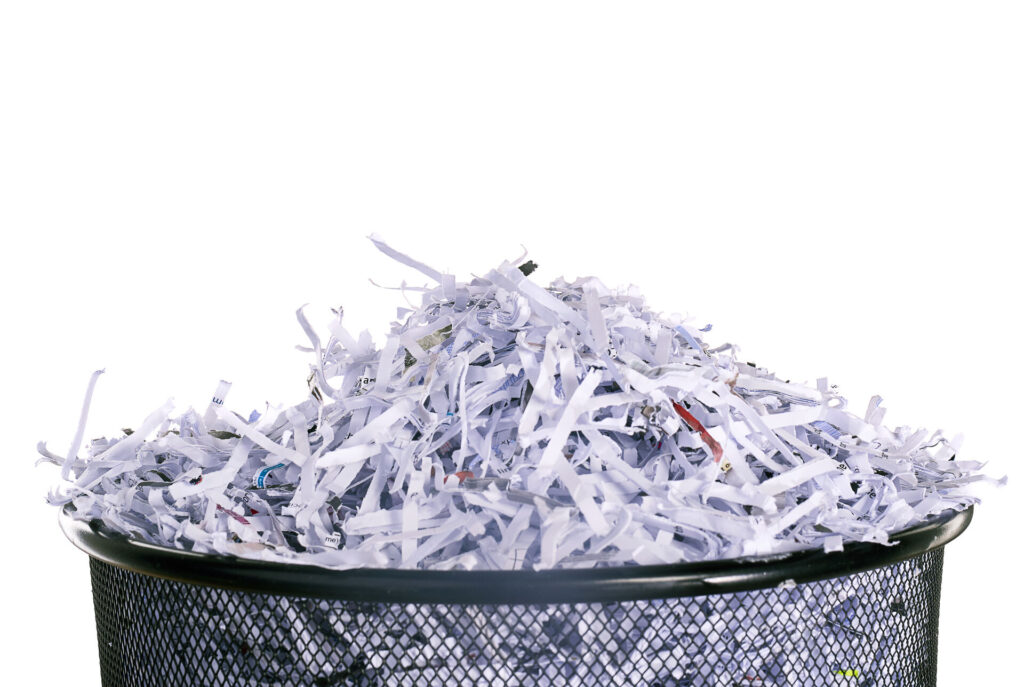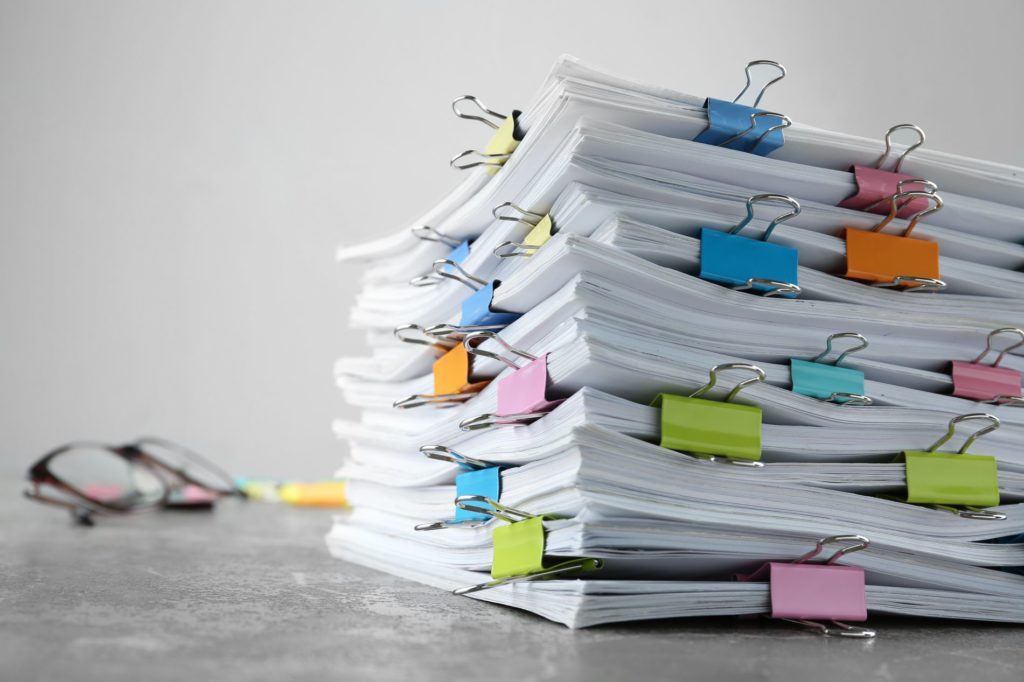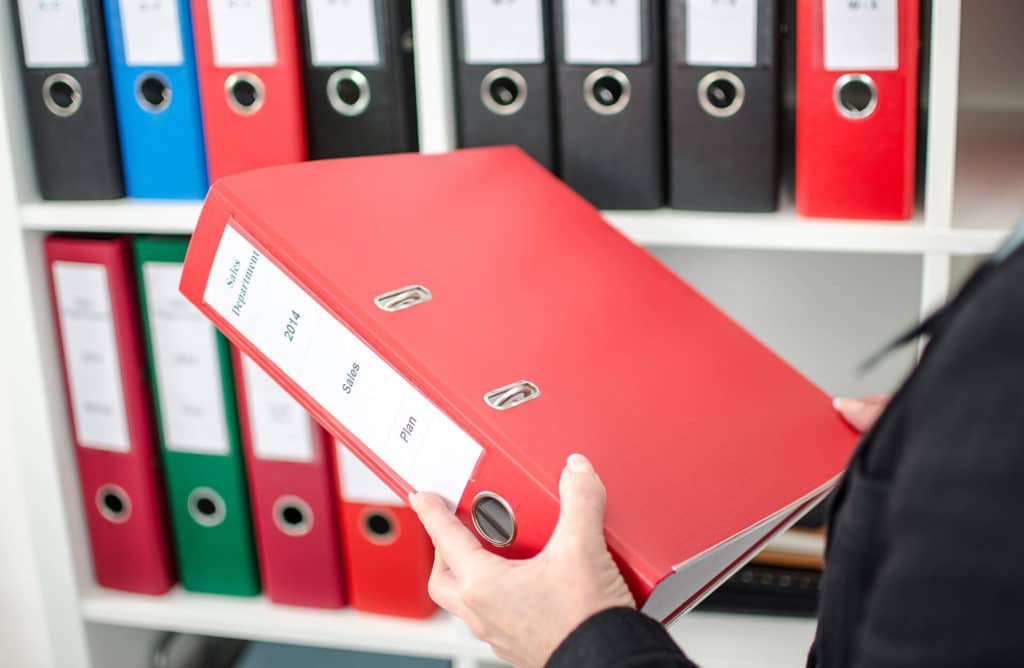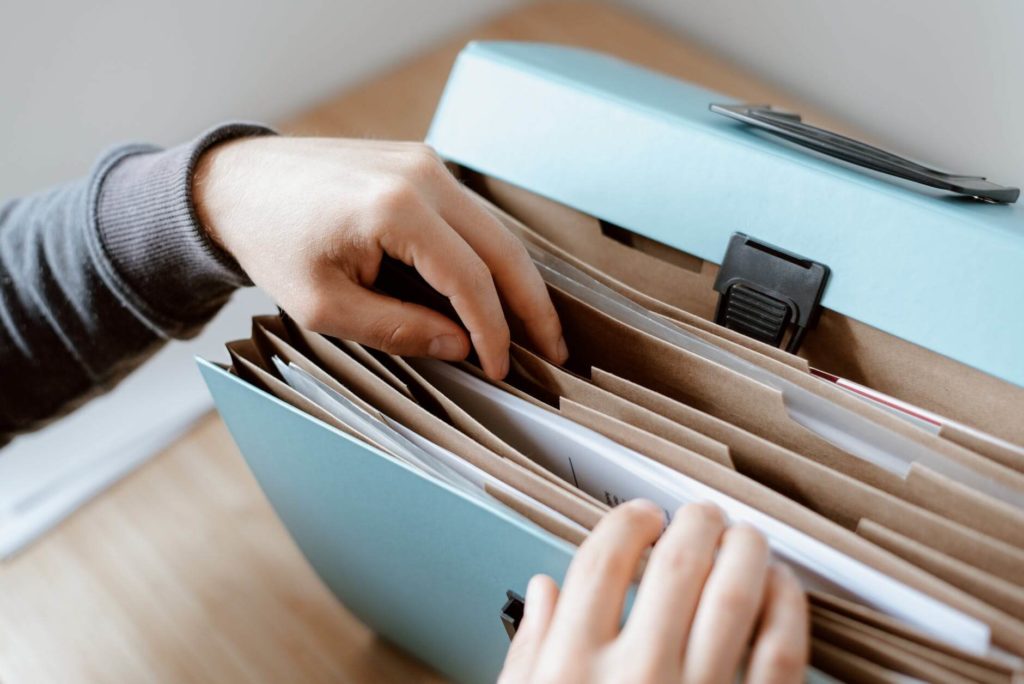If you’re struggling to keep important records in order, you’ve come to the right place. We have prepared the best tips on how to organize important documents at home just for you. The following guidelines will be more than helpful for those who are planning to relocate long-distance as well. Whether you are here to find a perfect filing system at your home office or want to know how to keep important documents organized and have a stress-free moving experience, consider reading this article.
Gather Your Personal Records and Other Valuable Papers in One Place
Before you start reading our tips on how to organize important papers, you should gather all your paperwork and personal records in one place. Go through every corner of your living room, kitchen drawers, bedroom nightstand, and dresser. You’ll probably find something in your briefcase or purse as well. Having everything in one place will help you be more thorough and focused on your task.
If you are preparing for a long-distance relocation, know that your documentation might be among the items movers won’t move. Thus, your checklist for moving to another state should prioritize tidying up paperwork. Keep reading to learn how to organize documents before you call cross-country movers and schedule their moving and packing services.

Organizing Important Documents in the Right Way Will Be Easier With These 5 Categories
Now that you have gathered all your documentation in one place, you can start dividing it into five categories. These should include action, archive, household, recycle, and shred groupings. For starters, you can have a box for each file group. Remember to label them carefully to avoid confusion, such as throwing away annual tax returns or insurance policies into the recycling box.
Create a Separate Folder for One-Time Paperwork
This file should contain paperwork you’ll need once and then discard. We recommend using a colorful box or a binder for these because it will strike your attention immediately. The file can be separated into several categories. However, you can just keep them all in one place, go through it twice every week, and shred or recycle files you’re finished with. Examples of these records include:
- Bills,
- Receipts,
- Invitations,
- Incoming mail,
- Parking tickets,
- Appointment reminders.
Place the Most Important Papers in an Archive Folder
Put essential documentation into the archive box. They prove that you and your family exist, pay taxes, own homes, have graduated, etc. You should categorize them alphabetically in fireproof and clearly labeled folders. Remember that you’ll have to hold onto these once or twice a year. These records include:
- Birth and baptismal certificates,
- Social security cards,
- Medical records,
- Academic records,
- Employment records,
- Tax returns,
- Deeds, leases, and contracts,
- Proof you served jury duty,
- Passports,
- Life insurance,
- Retirement documentation.
Carefully Compile Your Household Folder
As the name suggests, this box should contain records you use to keep your house running. These include anything you’ll have to use in the future but don’t need to act on right away. The household section should consist of:
- Coupons, gift cards, and vouchers,
- Loyalty cards,
- Recipes,
- Receipts for taxes,
- House/car/renter’s insurance policies,
- Documentation for upcoming travel.
Recycle Every File That Doesn’t Contain Personal Information
All documentation that doesn’t fall into any of the categories mentioned above and contains no personal information should go into the recycle box. This will probably be your biggest pile. It will include things like junk mail, worksheets from a seminar you or your family members are no longer interested in, magazines, newspapers, used envelopes, and old homework.
Shred Every Paper That Contains Identifying Information
On the other hand, you should be very careful with expired documentation that contains sensitive information about you and your family members. The best way is to shred all old bank statements, credit card offers, and bills.

Where to Store Important Documents?
When you finish sorting your documentation, you should find them a new place in your home, possibly in an easily reachable location. You can use color-coded binders, magazine holders, letter trays, install built-in shelves, or household filing cabinets. The solutions are endless. For more creative storage solution ideas on how to store important documents at home, check out the video below.
How Long Should You Keep Records?
We have already mentioned your options for expired or unwanted documentation. But do you know how long you should keep your relevant records? Make sure to go through your files at least once a month and declutter the excess:
- Records that should be kept for at least three months: receipts, utility bills, withdrawals, and slips for credit card deposits.
- Records that should be kept for a year: mortgage statements, paycheck receipts, expired insurance records, and checkbook ledgers.
- Records that should be kept for at least seven years: canceled checks, unemployment stubs, tax statements, bank statements, medical bills, and disability records.
- Records you should keep indefinitely: personal, educational, medical, marital, and retirement documentation; powers of attorney, annual tax returns, mortgage statement, legal contracts, real estate certificates, house improvement receipts, life insurance policies, vehicle titles, wills, and burial instructions.

Keep Your Papers Organized and Safe During Relocation
The tips mentioned above apply to anyone wondering how to organize important papers and keep them safe during a long-distance relocation. Whatever your reasons to move are, keep in mind that some of your files will maybe have to be stored in a storage unit for some time. You should create a moving binder for each category we pointed out, label them with clear and big letters, and make copies of the most important ones.
Unless you’re booking auto shipping services, you should transport papers in your own car. They should be packed in a bag that already contains your moving essentials. Documentation related to interstate moving should include personal ID files, moving, property-related, financial, and medical records.

That’s All You Need to Know on How to Organize Important Documents at Home
And that was it for the best tips on how to organize important documents at home. Whether you just needed a little guidance on sorting out your records or you have to pack carefully for a long-distance relocation, this article will come in handy. Documentation is among the most commonly forgotten things to pack, so this article can serve you as a reminder and will help you overcome anxiety about moving out. Just follow our categorization types, divide them into subcategories if you like, and enjoy having your important files at hand during all times.










